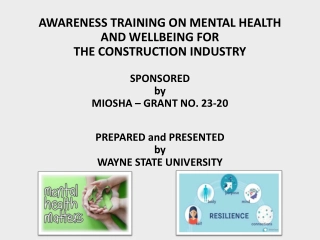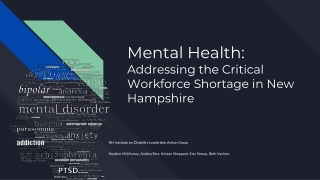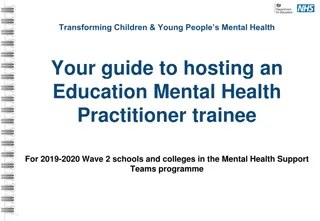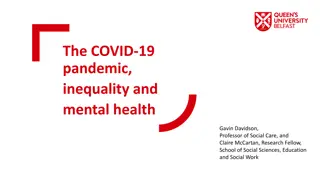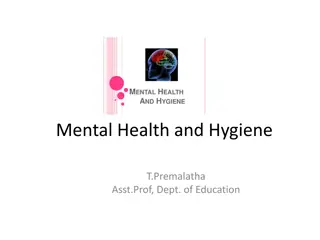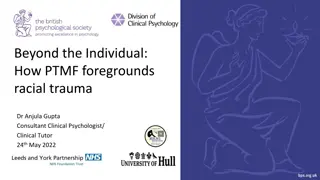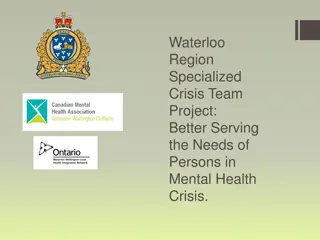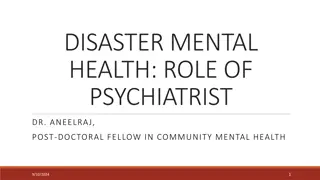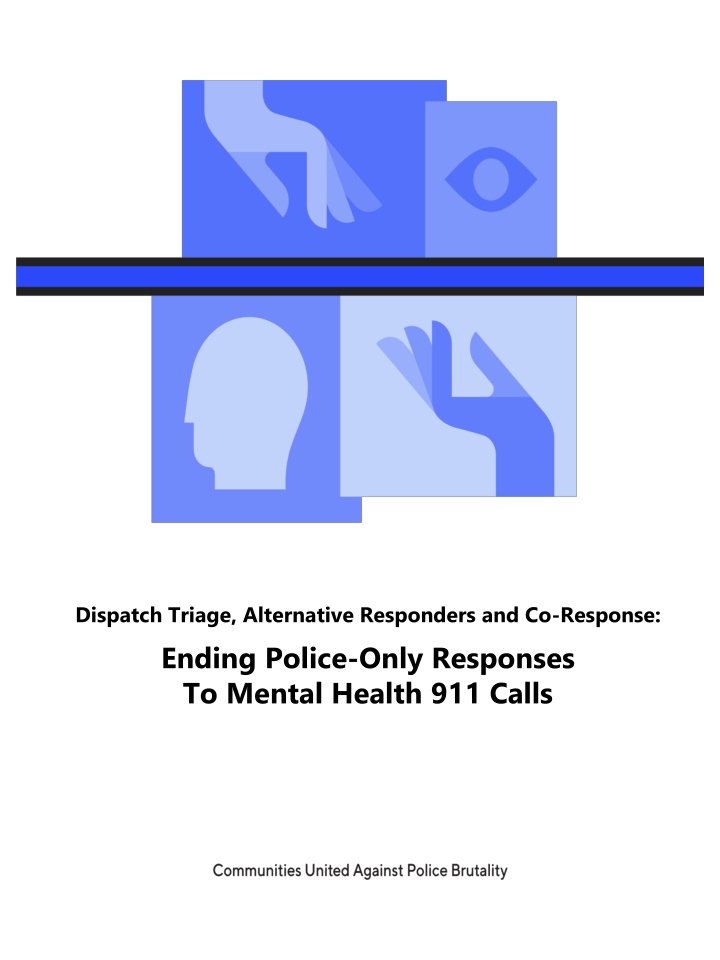
Ending Police-Only Responses to Mental Health 911 Calls
Discover the importance of ending police-only responses to mental health 911 calls and implementing dedicated mental health crisis response strategies. Learn about the tragic consequences of relying solely on police intervention, the need for alternative responders, and the challenges of criminalizing mental illness within the current system.
Download Presentation

Please find below an Image/Link to download the presentation.
The content on the website is provided AS IS for your information and personal use only. It may not be sold, licensed, or shared on other websites without obtaining consent from the author. If you encounter any issues during the download, it is possible that the publisher has removed the file from their server.
You are allowed to download the files provided on this website for personal or commercial use, subject to the condition that they are used lawfully. All files are the property of their respective owners.
The content on the website is provided AS IS for your information and personal use only. It may not be sold, licensed, or shared on other websites without obtaining consent from the author.
E N D
Presentation Transcript
Dispatch Triage, Alternative Responders and Co-Response: Ending Police-Only Responses To Mental Health 911 Calls
Alternatives to Police-Only Response to Mental Health 911 Calls 1) DEDICATED MENTAL HEALTH CRISIS RESPONSE A. Robust dispatch triage to deflect (reroute) calls away from police contact whenever possible. B. Rapid on-scene alternative responder options that utilize highly skilled mental health professionals. C. Well-utilized co-response options to get mental health professionals on-scene in circumstances where a police presence cannot be avoided (if needed). 2) ALTERNATIVE RESPONSE FOR OTHER CALLS NOT REQUIRING POLICE
Police-Only Response To Mental Health 911 Calls Can End in Tragedy Almost 50% of people who die at the hands of police have some kind of disability Report from Ruderman Family Foundation The odds of being killed during a police encounter are 16x higher for individuals with untreated serious mental illness (SMI) compared to the broader population Treatment Advocacy Center, a nonprofit that studies topics related to mental health
THE PROBLEM: Police-Only Response To Mental Health 911 Calls Doesn t Work Police are not trained to respond to mental health crises Crisis Intervention Team (CIT) course for police officers is 40 hours Psychologist 10-12 years of college education 3000+ hours of supervised training Licensed mental health care professional 7-8 years of college education 100+ hours of supervised training
Police-Only Response To Mental Health 911 Ensnares People in the Criminal Justice System Criminalizes mental illness Persons with serious mental illness (SMI) represent 4% of the population but 17% of the jail population Treatment Advocacy Center 52% of Hennepin County Jail population has mental illness 2014 spot survey 1 in 4 people with mental illness has a history of police arrest 2016 review of studies Lack of resources to treat mental health and coexisting conditions such as homelessness and substance abuse inside and outside of jails/prisons
Police-Only Response To Mental Health 911 Calls Wastes Money Increased costs to criminal justice system elevated risk of arrest and incarceration Staffing burden on police departments Unnecessary ambulance transfers Delayed care Emergency room and drop-off center costs Missed opportunity to connect with services Traumatization and decompensation after police encounter Potential for use of force and resulting litigation
Effective Model for Individuals Experiencing a Mental Health Crisis Ramsey County Mental Crisis Response Teams In 2017, Ramsey County initiated dispatch triage at the local 911 call center Number of calls deflected from police-only response increased ten-fold High prevalence of licensed clinical social workers (LICSW) Certification as Rule 25 Assessors
Start-Up Resources for Evidence-Based Approaches Advocates Inc. Work with local law enforcement agencies to create collaborate initiatives Focus on alternative response and multi- jurisdictional programs Founded in 2003 in Massachusetts Law Enforcement Learning Sites US Department of Labor, Bureau of Justice Assistance designated Criminal Justice Mental Health Law Enforcement Learning sites for communities to study active diversion programs o Arlington, MA o Houston o Los Angeles
Return on Investment (ROI) Minnesota s county mobile mental health crisis teams have a return on investment (ROI) of about $4.10 for every dollar invested. These ROI do not fully account for the savings created by reducing entanglements with the criminal justice system. Collaboration helps prevent entanglements with the criminal justice system; ROI can be as high as $10 per dollar invested.

